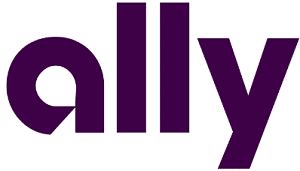Editorial Note: We earn a commission from partner links on Doughroller. Commissions do not affect our authors’ or editors’ opinions or evaluations. Learn more here.
Learning about how money works at a young age is a great way to prepare kids for their financial future. I can remember earning $1 per week as a kid for doing chores around the house (what a ripoff) and then folding the bill and putting it in my ninja turtle bank. If you were wondering, I was a Michaelangelo kind of kid.
Beyond earning money, it’s important that your kids learn how to save it and how to spend it responsibly. Today, that means getting them set up with an online bank account that you can keep an eye on.
Bank accounts for kids should have features for parents and kids, the highest APY, and the fewest fees. Teach your child how to save and manage money with our list of the best bank accounts for kids, including apps, checking, and savings accounts.
The Best Bank Accounts for Kids
| Bank / App | Account Type | Best Feature |
| Copper | App | Savings Rate |
| Capital One | Checking | Fee Free Checking |
| Greenlight | App | Cash Back |
| Axos | Checking | No Overdraft Fees |
| Fidelity | Checking | Learning to Invest |
| mph.Bank | App | Round Ups |
| Current | App | Set Spending Limits |
| GoHenry | App | Co-parenting |
| Step | App | Kids can build credit |
| Chase | Checking | Autopay Allowance |
| Wells Fargo | Checking | Mobile Deposits |
| Cap One 360 | Savings | Any Age OK |
| PNC Bank | Savings | Fun Learning Opportunities |
| Live Oak | Savings | Young Adult Savings |
| Ally Bank | Savings | Bucket Savings |
| Famzoo | App | Financial Education |
| BusyKid | App | QR Code Transfers |
| First Internet Bank | Savings | Free Savings Account @ 18 |
1. Copper
Copper gives teens a debit card and app to manage their funds. Parents can use Copper to pay their child for doing chores or earning an allowance. It’s safer than carrying around cash, and parents can send kids’ funds whenever needed. Copper also offers online resources for teens to learn about banking.
- Age requirement: Ages 13 – 17
- Features parents will like:
- Offers personal finance courses the way teens want to hear it (and will listen)
- Kids can set their own goals and can see their progress
- Parents can oversee all activity
- Parents can set up chores for their kids and autopay for allowance
- Interest Earned (APY): 5.00%
- Fees: No fees
2. Capital One Money Teen Checking Account

If your teen is ready to learn how money works, the Capital One Money Teen Checking Account is the perfect start. Even younger kids, starting at age eight, can have an account and get a free debit card. There are no fees or minimums; kids get hands-on experience while mom or dad oversee their habits.
- Age requirement: Ages 8+
- Features parents will like:
- Teens earn interest on any balance
- Parents can link an external bank account to send money to kids/teens
- Parents and kids can have separate logins to the Capital One app
- Kids get a free debit card that works at over 70,000 free ATMs
- Fees: No fees
3. Greenlight
Greenlight is a debit card designed for children and teens. Parents and guardians can add money to the card as gifts or payments for chores. The app also allows parents to set limits for their children’s spending. You can choose what stores they can shop at and how much they can spend.
- Age requirement: All ages
- Features parents will like:
- Instant money transfers
- ATM controls and mobile payments
- Education app with cash back and interest on savings
- Location sharing
- Fees: First month free, then $4.99 – $14.98 per month depending on plan and desired savings/cash back rate
4. Axos First Checking

Axos First Checking is an excellent first checking account for teens. Kids can learn to manage money and even earn interest on their balances. Parents can feel comfortable having full access to the account.
- Age requirement: Ages 13 – 17
- Features parents will like:
- No overdraft fees
- Set up customized alerts for daily spending and transactions
- Peer-to-peer payments
- Cash withdrawal limits are $100/day and point-of-sale transactions are $500/day
- Option to add an Axos First Savings Account to earn a higher APY
- Interest Earned (APY): 0.10%
- Fees: No fees
5. Fidelity Youth Account

The Fidelity Youth Account allows teens ages 13 – 17 to save, spend, and invest. If parents have a Fidelity account, this can be a great add-on. Teens can learn about compounded earnings from investing.
- Age requirement: Ages 13- 17
- Features parents will like:
- Free debit card and free ATM use
- Tools to help teens learn about personal finance
- Teens can use the secure mobile app and even link it to Venmo or PayPal
- Parents have access to a teen’s activity and can close or stop the card at any time
- Teens can invest with as little as $1
- Fees: No fees
6. mph.Bank
The mph.Bank First Account is designed for kids and parents who need a straightforward bank account with no fees. It offers a modest APY and a cool round-up feature that allows your child to start saving automatically. When a purchase is made using the mph.Bank debit card, the amount is rounded up to the nearest dollar, and the extra is tossed into savings.
- Age requirement: Ages 10-24
- Features parents will like:
- Free contactless debit card and free ATM use at more than 55,000 Allpoint ATMs
- Personalized dashboard
- P2P transfers using Zelle
- Get paid on direct deposit up to 2 days early
- Interest Earned (APY): 1.00% APY
- Fees: No fees
7. Current

Current isn’t a bank but it does offer a debit card built for teens. Teens can also set up savings goals and round up transactions. Parents can set limits, oversee transactions, and automate payments for chores. You can link your checking account to a Current account to transfer money in seconds.
- Age requirement: Ages 13 – 17
- Features parents will like:
- Parents can block merchants if they have a problem with their teen’s spending
- Parents can set limits for teens’ spending or even shut the card off
- Parents can get alerts about their teens’ activities
- You can automate chores and payment for those chores
- Makes saving easy with round-ups and Savings Pods
- Interest Earned (APY): Up to 0.10%
- Fees: No fees
8. GoHenry
GoHenry was developed to help kids and teens learn about finances. Parents can pay allowances when chores are done, and later, when your teen gets a job they can have their paycheck directly deposited. GoHenry has a library of “money missions” designed to teach your kids about financial wellness, and they get points and badges when they complete lessons.
Kids will like it because they get to choose from among 45 debit card designs. Parents will like it because they can set boundaries on where and when kids can spend.
- Age requirement: All ages
- Features parents will like:
- Money missions to help teach kids financial literacy
- Companion app for parents to set goals and limits
- Real-time spend notifications
- Instant transfers and chore payments
- Fees: $4.99 per month after 30-day free trial
9. Step

Step is the combination of a Visa card and a bank account. It’s FDIC-insured and teens receive a Visa card that also helps them begin to build credit. Parents can send teens money right from their phones. Parents and kids can also access the Step app to track spending and help with savings goals.
- Age requirement: Ages 13 – 17
- Features parents will like:
- Teens can set savings goals and track their progress in the app
- Teens that set up direct deposit can get paid up to 2 days early
- No more need to go to the ATM
- Teens can build credit and have the reassurance of FDIC coverage
- Interest Earned (APY): 5.00%
- Fees: No monthly fees
10. Chase First Banking

Chase First Banking helps kids learn how to manage finances with a hands-on approach. Parents are still in control, but kids have access to a debit card to learn to manage their funds. Parents can set spending limits by the amount or by category. But, parents need to have a Chase checking account before opening a Chase First bank account.
- Age requirement: Ages 6 – 17
- Features parents will like:
- Get alerts on where and what your child spends money on
- Manage all your Chase accounts in the Chase mobile app
- Parents can set up limits on where and how much their child can spend
- Teens can request money from their parents
- Kids/teens can set up goals (save for a pair of shoes, etc.) and see their progress
- Set up chores or ways to earn money in the app
- Fees: No monthly fees
11. Wells Fargo Clear Access Banking

Clear Access Banking is a second-chance bank account for adults with bad credit. But, it makes a great teen account, too. You’ll need to visit a bank branch to open an account.
If you have a Wells Fargo account, even better. Getting a Clear Access account for your teen can allow you to track all your bank accounts in one place.
- Age requirement: Ages 13 – 17 (adults can also use it as a second chance checking account)
- Features parents will like:
- Offers mobile deposit, so you don’t have to go to the bank
- 12,000+ fee-free ATMs
- No minimum balance required
- Simple online banking features
- Fees: No fee for ages 13 – 24, but $5 per month after that
12. Capital One 360 Kids Savings Account

The Capital One 360 Kids Savings Account makes it easy for parents and kids to save with their mobile app. Parents can manage many savings accounts for kids with no fees and no minimum balance. The Capital One Kids Savings Account offers one of the highest APYs on this list.
- Age requirement: None
- Features parents will like:
- No monthly fees
- No minimum balance to worry about
- Can set up regular deposits for allowance
- You can link your bank account to your child’s account
- FDIC insured
- Interest Earned (APY): 2.50%
- Fees: No fees
Read our Cap One 360 Savings Review
13. PNC Bank S Is for Savings Account

PNC makes banking fun with Sesame Street characters and their “S is for Savings” account to help teach kids about money and saving. The free account is great for young kids, and it earns interest starting at $1.
- Age requirement: Any age up to 18
- Features parents will like:
- Kids can learn how to save while having fun
- There’s no minimum required balance
- Parents can set up savings goals and kids can watch their progress
- Fees: No fees when under the age of 18. $5 afterwards.
14. Live Oak High Yield Online Savings

Live Oak makes it effortless to save money with a high APY. There are no monthly costs and you can link to other bank accounts for easy funding. The account is 100% online, but it offers the highest APY on this list. Account holders need to be at least 18 years old.
- Age requirement: 18+
- Features parents will like:
- High APY
- Everything is online
- The mobile app makes it easy to manage the account
- APY: 4.40%
- Fees: No fees
15. Ally Bank Savings Account

The Ally Bank Savings Account is an online account with high APYs and no monthly fees. It offers smart savings tools that Ally claims help its clients save two times as much money. Account holders need to be at least 18 years old.
With Ally, you can save in buckets, so that you’re meeting individual savings goals you set for yourself.
- Age requirement: 18+
- Features parents will like:
- You can set up ‘buckets’ for different savings goals
- Offers personalized recommendations to help teens learn to save more
- You can set up roundups that round up your purchases and save the change
- APY: 4.20%
- Fees: No fees
16. FamZoo
FamZoo is another debit card that helps children and teens create good spending habits. Parents can set up subaccounts for categories like saving, spending, investing, and giving. You can also set up incentives and rewards for reaching goals or earning money. FamZoo costs $5.99/month, $39.99/year, or $59.99 for 24 months.
- Age requirement: All ages
- Features parents will like:
- No external bank account required
- No smartphone required
- Educational app
- Sub-accounts for savings and incentive tracking
- Fees: $5.99 per month (discount for longer deals)
17. BusyKid

The BusyKid app allows parents to pay their child or teen for chores or other activities. Like Famzoo, the BusyKid app helps children divide their money into different categories. BusyKid categories include savings, spending, and sharing/donations.
The BusyKid app notifies parents when kids use their BusyKid Prepaid Visa. BusyKid also offers BusyPay, a QR Code you can share with family and friends who want to gift your child money.
- Age requirement: All ages
- Features parents will like:
- Money missions to help teach kids financial literacy
- Companion app for parents to set goals and limits
- Real-time spend notifications
- Instant transfers and chore payments
- Fees: $4 per month after a 30-day free trial
18. First Internet Bank Tomorrow’s Tycoon Account

You can open a First Internet Bank Tomorrow’s Tycoon Account with as little as $100. There are no fees, and the account allows six withdrawals per month. At age 18, the account converts to a traditional savings account (free).
- Age requirement: Any age up to 18
- Features parents will like:
- Kids can learn how to save
- There’s no minimum required balance
- There are no monthly fees
- Interest Earned (APY): 0.81%
- Fees: No fees
How Bank Accounts for Kids Work
Bank accounts for kids work like bank accounts for adults. The difference is bank accounts for kids offer parents a safe way to watch their kid’s spending. Kids usually have to have a joint account with their parents until they are no longer minors.
Parents can oversee the account, control spending, and help lock a card if it’s lost or stolen. Parents can also link their own account to their child’s account for easy funding. Many bank accounts for kids also offer resources to teach children how banking works.
Online Banking Caveats
One potential problem with an online bank account like those listed above: there are no branches. If you plan to have your child save quarters and dollars in allowance money to deposit into the bank monthly, this could present an issue. Still, many parents have slick allowance tracking options that would allow you to deposit allowances or earned cash straight into the online account.
How We Chose the Bank Accounts in This List
The bank accounts in this list offer features parents will like. These accounts also offer the best interest rates we could find for kid’s accounts.
The bank accounts listed here are available nationwide. Each one is attainable for applicants (parents) and few, if any will charge a monthly fee to ensure you and your kids are not losing savings to pesky bank fees.
Why Open a Bank Account For Your Kids?
It’s never too early to open a bank account for your kids. Saving money and making good spending decisions are essential habits for adults. Teaching children how to use a bank account at a young age can prepare them for a solid financial future.
Frequently Asked Questions (FAQ)
What do you need to open a kid’s bank account?
To open a kid’s bank account, you’ll need to provide your name, address and phone number along with:
Your government-issued ID
Your social security number
Your child’s name
Your child’s social security number
A small deposit to open most accounts
Do you have to pay taxes on a kid’s bank account?
Interest on a kid’s bank account is taxable at the parent’s tax rate. But, most kids don’t earn enough interest for it to cross the IRS threshold.
What is the youngest age a child can have a bank account?
Most bank accounts are for kids ages 13 through 17. But, you can open a few bank accounts on our list as soon as the first day your child is born.
Final Thoughts
Opening a bank account for kids is one of the best ways to teach kids about money and help them achieve their goals. Learning how to manage and save money early is essential. It is one of the best ways to help kids make sound financial decisions in life, which is a parent’s dream.
One of the greatest gifts we can give a child is to teach them financial responsibility at a young age. And savings accounts for children can go a long way in this effort. As my wife and I raise our two kids, now both teenagers, we can see just how important it is that kids understand basic money management skills.
The right type of online savings account for a child can help teach children several important financial lessons:
- The Power of Compound Interest: While perhaps urban legend, Einstein is said to have quipped, “The most powerful force in the universe is compound interest.” Watching a savings account grow through compound interest can help teach a child the importance and benefits of saving and investing at an early age.
- Setting and Achieving Goals: Setting goals helps us think well beyond the moment. Financially speaking, consistent goal setting can help anybody achieve a greater level of financial freedom and wealth.
- The Importance of Saving: Instilling in our children the habit of saving money can help them avoid a lot of grief later in life. Teach a child this lesson early in life, and they are far more likely to maintain the habit of saving when they are older.






